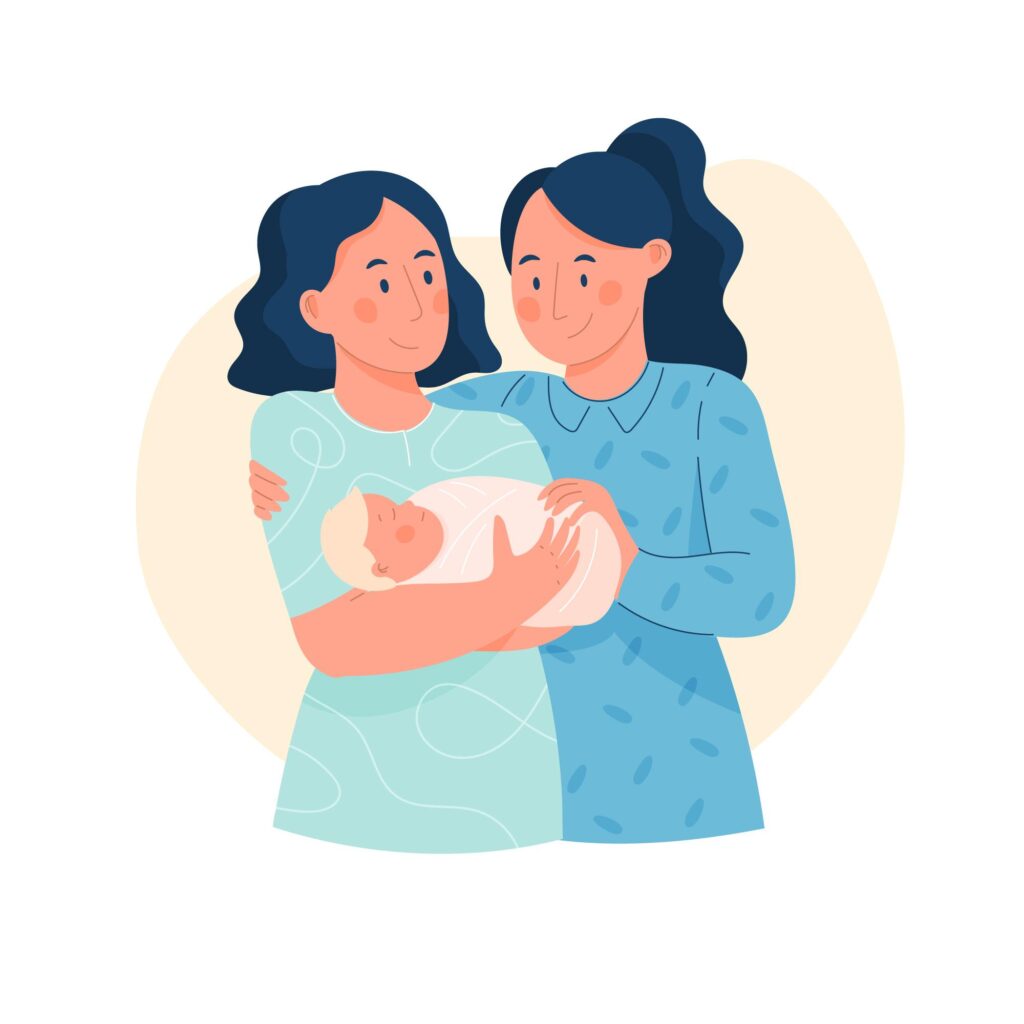Exploring Current Infertility Options for Intended Parents

What Are Current Infertility Options For Intended Parents?
Exploring Current Infertility Options for Intended Parents-Infertility affects millions of individuals and couples worldwide, often leading to emotional distress and feelings of hopelessness. For intended parents who dream of creating a family, the inability to conceive naturally can be heartbreaking. However, with advancements in assisted reproductive technology, there are now various fertility treatment options available to help individuals and couples achieve their dream of parenthood.
- Book an online appointment: Get a free online consultation.
- Call\W:+91-8800481100 Email:neelam@ivfconceptions.com
From in vitro fertilization (IVF) solutions to third-party reproduction methods like egg donation and surrogacy, modern medicine offers multiple pathways to parenthood. Let’s explore the latest infertility solutions for intended parents and how these options can bring you closer to growing your family.
In this article, we will explore the current infertility options for intended parents, including assisted reproductive techniques, third-party reproduction, and adoption. We will delve into the benefits and challenges of each option, as well as the important legal and ethical considerations that come into play.
More Resources to Read:
Surrogacy Guide for Surrogate Mothers
Surrogacy Guide for Intended Parents
How does the surrogacy process work
By understanding the range of possibilities available, intended parents can make informed decisions and seek the support and guidance they need to embark on their journey towards parenthood. With a professional and objective approach, we aim to provide a comprehensive overview of the current infertility options and empower intended parents to make the best choice for themselves and their future families.

Introduction and Understanding Current Infertility Options For Intended Parents
Infertility is a deeply challenging and often heartbreaking reality faced by many couples longing to start a family. It refers to the inability to conceive despite regular, unprotected intercourse over a significant period.
For intended parents, infertility can have a profound impact on their lives, causing feelings of sadness, frustration, and a sense of loss. The emotional toll of infertility can be overwhelming, as couples navigate through the rollercoaster of hope, disappointment, and uncertainty.
Additionally, the physical demands of infertility treatments and procedures can further strain individuals and relationships. Recognizing the impact of infertility, this blog post aims to delve into the current infertility options available for intended parents, providing information and insights to help them make informed choices on their path toward parenthood.
Understanding Infertility
Infertility is a complex medical condition that affects many 1 out of 8 couples worldwide. Defined as the inability to conceive after a year of regular, unprotected intercourse, infertility is a distressing and widespread issue.
Studies have shown that approximately 10-15% of couples globally struggle with infertility. It is important to note that infertility can arise from both male and female factors or a combination of both.
For women, factors such as hormonal imbalances, ovulation disorders, blocked fallopian tubes or age-related decline in fertility can contribute to infertility.
On the other hand, male infertility can be caused by issues such as low sperm count, poor sperm motility, or structural abnormalities. It is crucial for couples experiencing difficulties in conceiving to seek medical help and undergo thorough diagnostic tests.
A proper diagnosis will help identify the underlying causes of infertility and guide the selection of appropriate treatment options. By seeking medical assistance early on, couples can increase their chances of successful conception and explore the most suitable infertility treatments tailored to their specific needs.

Assisted Reproductive Technologies (ART)
Assisted Reproductive Technologies (ART) encompass a range of medical procedures designed to assist individuals and couples in achieving pregnancy.
These techniques are particularly beneficial for those facing fertility challenges, including issues with ovulation, sperm quality, or blocked fallopian tubes.
- In vitro fertilization (IVF) is one of the most commonly utilized ART procedures. It involves the retrieval of eggs from the woman’s ovaries, which are then fertilized with sperm in a laboratory. The resulting embryos are later transferred into the woman’s uterus, increasing the chances of successful implantation and pregnancy. IVF has proven to be highly effective, with success rates varying based on factors such as age and overall health.
- Intracytoplasmic sperm injection (ICSI) is another ART procedure used when male infertility is a concern. It involves the direct injection of a single sperm into an egg to achieve fertilization. This technique is especially useful when there are sperm abnormalities or low sperm count.
- Intrauterine insemination (IUI) is a less invasive ART procedure where specially prepared sperm is placed directly into the woman’s uterus during ovulation. This procedure is often recommended for individuals with mild fertility issues or unexplained infertility.
While ART procedures offer hope to intended parents, it is essential to consider potential risks and limitations. These may include multiple pregnancies, ovarian hyperstimulation syndrome, and emotional and financial strain. Consulting with a fertility specialist is crucial to discuss individual circumstances, assess success rates, and understand the associated risks and considerations of each ART procedure.
Third-Party Reproduction Services
Third-party reproduction offers a viable option for individuals and couples who are unable to conceive using their own gametes or carry a pregnancy to term. This includes the possibility of egg donation, sperm donation, and surrogacy.
These methods involve the use of donor eggs or sperm, or the assistance of a gestational carrier, respectively. When considering third-party reproduction, it is crucial to understand the legal and ethical considerations involved.
Different countries and jurisdictions have varying laws and regulations regarding these procedures, including parental rights and financial agreements. It is essential to consult with legal professionals specializing in reproductive law to ensure compliance and protect the rights of all parties involved.
Additionally, finding reputable agencies and clinics is of utmost importance. Thorough research, checking certifications, and seeking references can help navigate this process and ensure a safe and ethical experience for everyone involved.

Alternative and Complementary Approaches
Alternative and complementary approaches can be explored as potential options for infertility treatment. Acupuncture, herbal medicine, and lifestyle changes are among the alternative therapies that some individuals and couples consider.
However, it is crucial to consult with healthcare professionals before pursuing such treatments. While these approaches may have anecdotal success stories, scientific evidence supporting their effectiveness in treating infertility is limited.
Healthcare professionals can guide the safety and potential benefits of these methods, taking into account individual medical histories and specific circumstances. It is important to approach these alternative treatments with caution and maintain a holistic approach that combines medical interventions with alternative therapies, ensuring comprehensive and well-informed care for intended parents.
Additional guide for intended parents:
Best surrogacy agency in India
Best surrogacy agency in Mexico
Best surrogacy agency in Colombia
Best surrogacy agency in Argentina
Best surrogacy agency in Georgia
Best surrogacy agency in the USA
Best surrogacy agency in Ukraine
Best surrogacy agency in Armenia
Conclusion
In conclusion, there are a variety of current infertility options available for intended parents, ranging from medical treatments to assisted reproductive technologies. Intended parents need to consult with a medical professional and consider all factors before making a decision on which option is best for them. With advancements in technology and a growing understanding of infertility, there is hope for those struggling to conceive. It is important to stay informed and seek support during this journey towards parenthood.
If you’d like to learn more about IVF, Egg Donation, or surrogacy services globally, check out the rest of our website at Complete Surrogacy Agency. We offer legally secure and affordable surrogacy consulting services for FREE.
For more resources on IVF and Surrogacy, browse our other web page- IVF Conceptions.
For more resources on IVF and Surrogacy, browse our other web page- Georgia Surrogacy Agency.
Complete Surrogacy: Your Trusted Partner in International Surrogacy
At Complete Surrogacy, we have over 15 years of experience in international surrogacy, guiding 4,000+ intended parents worldwide. We provide safe, ethical, and affordable surrogacy solutions for single parents, LGBTQ+ couples, and heterosexual couples.
As members of EFS and ESHRE, we adhere to the highest ethical and professional standards. Our expert team is committed to providing accurate, compassionate, and transparent guidance, ensuring a legally secure and smooth journey to parenthood.
Let us help you build your family with trust, care, and integrity.
Get in touch for one FREE Surrogacy Consultancy!
References used:
FAQs for Current Infertility Options For Intended Parents
What are the most common infertility treatment options available for intended parents?
The most common infertility treatment options available for intended parents include in vitro fertilization (IVF), which involves combining eggs and sperm in a laboratory and then transferring the resulting embryos into the uterus; intrauterine insemination (IUI), which involves placing sperm directly into the uterus during ovulation; and fertility medications, which help stimulate ovulation.
Other options include surrogacy, where another woman carries the pregnancy for the intended parents, and adoption. The best treatment option for each couple depends on various factors such as the cause of infertility, age, and overall health.
How effective are assisted reproductive technologies (ART) such as in vitro fertilization (IVF) in helping intended parents conceive?
Assisted reproductive technologies (ART) such as in vitro fertilization (IVF) have proven to be highly effective in helping intended parents conceive. IVF involves combining eggs and sperm outside the body and then transferring the resulting embryos into the woman’s uterus.
Success rates depend on various factors, including the woman’s age and overall health, the quality of the sperm and eggs, and the expertise of the medical team. On average, the success rate for IVF is around 30-40% per cycle, but this can vary. While ART can greatly increase the chances of conception for intended parents, it is important to consult with medical professionals to determine the best course of action given individual circumstances.
Are there any alternative options for intended parents who are unable to conceive through traditional methods or ART?
Yes, there are alternative options for intended parents unable to conceive through traditional methods or assisted reproductive technology (ART).
Some options include adoption, surrogacy, and fostering. Adoption involves legally adopting a child who is not biologically related to the intended parents. Surrogacy involves a woman carrying a pregnancy on behalf of the intended parents. Fostering involves temporarily caring for a child who is in state custody.
These alternative options provide opportunities for individuals or couples to become parents and build their families, regardless of their ability to conceive naturally or through ART.
What are the potential risks or side effects associated with infertility treatments for intended parents?
Potential risks or side effects associated with infertility treatments for intended parents include physical and emotional stress, financial strain, and potential complications from fertility medications or procedures.
There is a small risk of multiple pregnancies, which can lead to complications such as preterm labor or low birth weight. In rare cases, fertility treatments can also result in ovarian hyperstimulation syndrome or ectopic pregnancy.

Author Bio: Neelam Chhagani is an International Surrogacy Expert with 15 years of experience in the fertility and surrogacy domain. As the founder of IVF Conceptions and Complete Surrogacy, she has guided over 4,000 intended parents worldwide on their surrogacy journey to parenthood. Recognized as a trusted authority, she specializes in holistic infertility solutions and third-party reproduction consulting.
Holding an MA in Counselling Psychology and a PGD in Mental Health, Neelam is a proud member of the European Fertility Society (EFS) and the European Society of Human Reproduction and Embryology (ESHRE). She is also a leading surrogacy blogger, providing valuable insights into ethical and practical surrogacy solutions.
Since 2010, committed to supporting ALL family types, Neelam has been passionate about helping intended parents grow their families with compassion, integrity, and a focus on secure and affordable surrogacy options Globally.
Learn more about Neelam:
https://www.ivfconceptions.com/neelam-chhagani-surrogacy-consultant/
https://www.linkedin.com/in/neelam-chhagani-92892229/















I was introduced to Neelam by a friend who worked with Neelam for surrogacy. Neelam is absolutely wonderful. I am a single male and the journey to fatherhood is not that easy. Neelam connected me to a program ideal for my circumstances. She was with me throughout the pregnancy providing advice and guidance along the way. I am so grateful I found her and am thrilled today that I have a beautiful daughter. I highly recommend Neelam to anyone who is on a journey to become a parent. Having a child has changed my world for the better. I wish others success with their own journey and recommend you connect with Neelam to find a path that is best for you.
SA (USA)